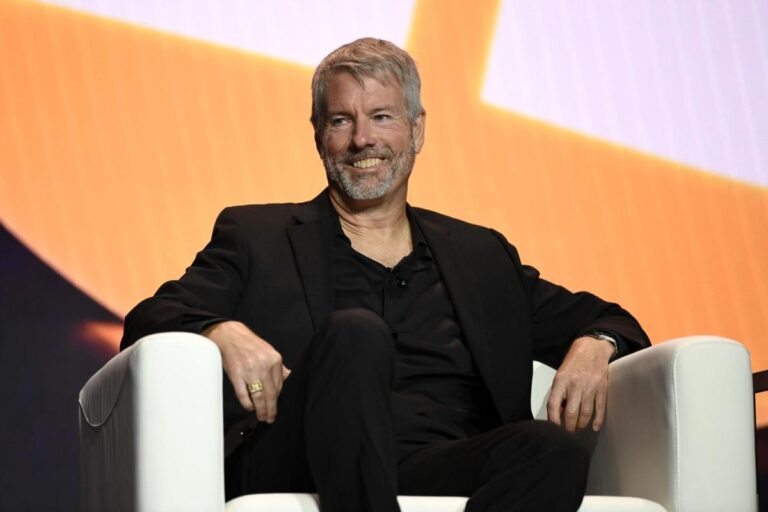Ryan Cohen recently posted an untitled picture of himself standing next to Bitcoin enthusiast Michael Saylor, the CEO of the company formerly known as Microstrategy. Now CNBC reports the GameStop CEO may use some of the cash in his war chest to buy BTC coins that have soared in value recently.
Could video game retailer GameStop morph into a Bitcoin play just like Microstrategy?
An untitled February 8 post by CEO Ryan Cohen simply depicting him standing next to Michael Saylor, who transformed his software company into a levered play on the price of BTC tokens, sparked speculation GameStop might diversify its cash pile into the digital currency.
On Thursday, CNBC reported three informed sources saying the company was interested in investing in alternative asset classes.
These include crypto and BTC in particular, which has risen from around $60,000 to $100,000 in the past six months.
Gains have been helped by the election of crypto enthusiast Donald Trump to the presidency.
Shares in GameStop are up 5% in trading at the time of publication.
More than four years after Cohen’s investment firm first blasted former management for lacking a future strategy and 18 months since he seized control, the Chewy founder has failed to present a clear plan for the company.
So far, Cohen has shrunk GameStop’s unprofitable brick-and-mortar footprint, most recently shedding its Italian stores and outright shutting down its German operations during the fiscal fourth quarter that just ended.
Revenue in the first nine months fell by 27% to just $2.54 billion.
GameStop only broke even during the period thanks to $109 million it earned on its portfolio of short-dated securities and T-bills, which is throwing off cash at a 4.7% annualized rate unadjusted for inflation.
It has the cash to fund a transformation plan, having raised $3.45 billion in net proceeds through three separate stock issues—all money it pocketed with no strings attached.
But no plan has been forthcoming. It hasn’t helped that GameStop does not include an outlook for the fiscal year in its financial filings or hold investor calls.
Its strategy at this point is boiled down to achieving profitability while being “the leading destination for games and entertainment products” through physical and digital retail—a business that, as its financials testify, is shrinking.
Story Continues


